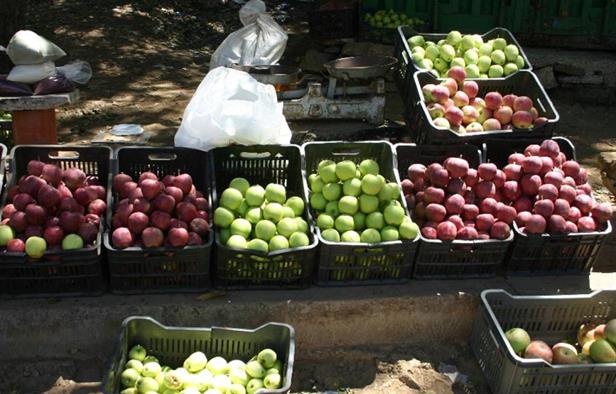jassemajaka@gmail.com
Lebanon’s economy at risk
Ajaka: Gulf countries’ imports of Lebanese agriculture products are worth $920 million
Myra Abdallah & Amin Nasr: It has been almost two weeks since member states of the Gulf Cooperation Council (GCC) declared Hezbollah a terrorist organization. The declaration of GCC member states came shortly after Saudi Arabia decided to halt $4 billion worth military aid to the Lebanese army. Saudi Arabia’s move was seen as a punitive measure that aimed to send a message to Riyadh’s allies rather than its enemies in Lebanon. However, the GCC’s declaration, objected to by a number of Arab countries and Lebanon’s Minister of Foreign Affairs Gibran Bassil, was a signal that Gulf countries may be planning to act beyond just freezing military aid.
Economic activity between Lebanon and Saudi Arabia has always been a stimulant to the Lebanese economy. On one hand, Saudi investments in Lebanon’s contractual, industrial and touristic sectors form a solid pillar of the economy, with Lebanese citizens living and working in Gulf countries also benefiting from this economic activity. Lebanese Customs statistics show that Gulf imports make up approximately 3
“GCC member states are Lebanon’s main trade partner in industrial and agriculture products,” said economic expert Walid Bou Sleiman. “Regarding the export of agriculture products, Gulf countries import approximately 6
Despite concerns that Lebanese citizens have raised over the probability of economic sanctions against Lebanon, economic experts whom NOW spoke to argued that sanctions are unlikely to be imposed. The economic exchange between Saudi Arabia and Lebanon has always been constant and important, especially in the agriculture sector. “Gulf countries’ imports of Lebanese agriculture products are worth $920 million,” said Professor Jassem Ajaka, consultant to the Minister of Economy and Trade Alain Hakim. “These figures amount to 1
In addition, after the GCC labeled Hezbollah as a terrorist organization, many Gulf countries deported Lebanese families on short notice. Lebanese citizens who live and work in Gulf countries are currently uncertain whether or not they are at risk of deportation too. “The minister [of economy and trade] visited Saudi and the Emirati ambassadors recently and asked them if there is a plan to deport Lebanese people from Gulf countries, which both them firmly denied. However, they told us that people who have security files will be deported,” said Ajaka, claiming that only people who have connections to Hezbollah either through phone calls or messages supporting the party are at risk of deportation.
Since Lebanese-Saudi relations began in 1952 with the visit of President Camille Chamoun to Riyadh, the Lebanese have received attractive offers to work in Saudi Arabia during the Saudi oil boom. Today, there are more than 300 thousand Lebanese citizens working in Saudi Arabia. In return, the Saudi Arabian government has invested heavily in Lebanon’s tourism and hospitality, and real-estate sectors. “Saudi Arabia has been politically, financially and militarily investing in Lebanon ever since the Taif Agreement. It will not leave Lebanon now and offer it to Iran that easily. In addition, Lebanese people have been working in the oil sector in Gulf countries since the 1960s. Therefore, they are not considered as a burden on the Gulf economy. Rather, Gulf citizens are now benefiting from their experience,” Ajaka said.
“There won’t be any sanctions on the Lebanese agriculture sector,” said Ibrahim Tarshishi, head of the National Union of Farmers in Lebanon. “All sects in Lebanon benefit from the agriculture sector. The people who work in this sector are from all Lebanese regions, sects, and political affiliations.” Tarshishi told NOW that despite the war in Syria and the political divergences between Saudi Arabia and the Syrian regime, the import and export of agriculture goods has been maintained. The only major change is that some Syrian exporters have been refused entry to Saudi Arabia. The same thing could happen with Lebanese exporters but this does not mean that Saudi Arabia will boycott Lebanon entirely. “In addition, Saudi Arabia will not harm the Sunni community in Lebanon. A large number of truck owners and drivers are Sunnis. Therefore, limiting entry visas to Lebanese citizens is unlikely to happen,” Tarshishi argued.
Similarly, experts whom NOW spoke to confirmed that Saudi Arabia’s problem is not against the Lebanese government, only Hezbollah’s influence over it. In addition, Saudi Arabia has always been a main supporter the Sunni community in Lebanon, specifically the Future Movement. Imposing sanctions on Lebanon would also mean imposing sanctions on the community that Saudi Arabia has been supporting and funding for decades. “Saudi Arabia will not harm Lebanese categories that are important to her,” said Ajaka.
“If Gulf countries decided to boycott Lebanese products, unfortunately, Lebanon does not have a plan B to revive its economy,” said Bou Sleiman. “Lebanese farmers suffered greatly when borders were closed during the war in Syria. If Gulf countries boycott Lebanese products, Lebanon does not have an alternative market to export its products, and this will put Lebanese farmers and the agriculture sector in a catastrophic situation.”



